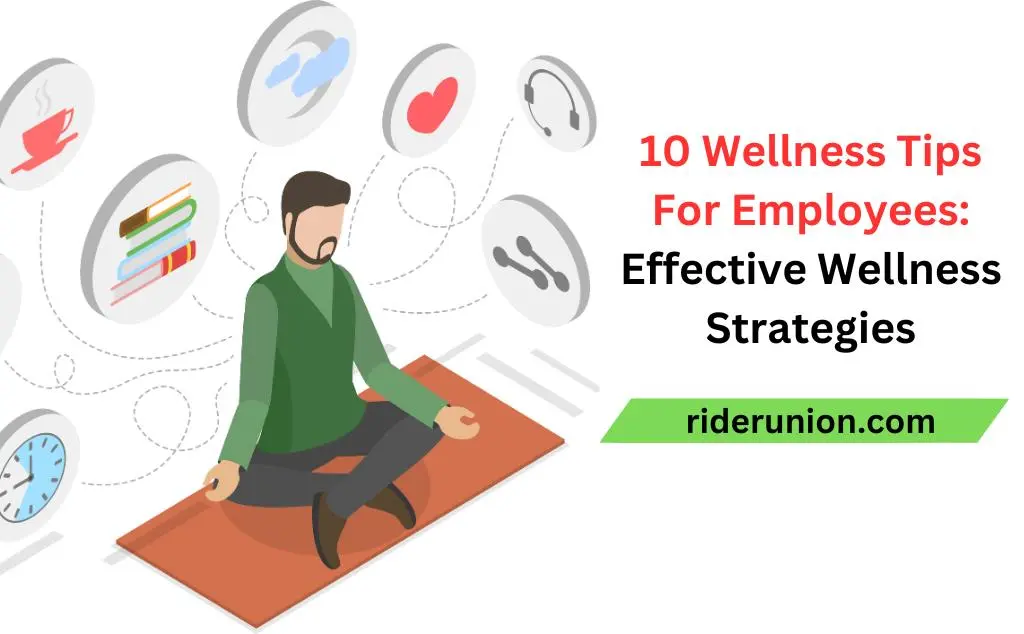Since staff members are the lifeblood of every company, it's crucial to know how employee health influences corporate performance and the part companies play in encouraging and supporting good health across the workforce.Businesses pay £18.8 billion in 2019/2020 for employee health concerns in the workplace; study shows that presenteeism brought on by poor mental health costs UK companies £29 billion annually.
On the other hand, excellent wellness tips for employees have a big impact on people's happiness and life satisfaction as well as on the bottom line of a company. Thus, encouraging and helping staff wellness is really vital.
Sharing health suggestions with staff is one approach businesses may do. This is a straightforward approach to start staff members considering how they may better their personal health and talking about wellness.
This document provides staff health advice stressing social, physical, and psychological aspects.
Wellness Tips For Employees
1. Keep hydrated.
Although numerous body processes depend on water, it's easy to overlook drinking it, particularly when hectic at work. Remind your staff to keep hydrated; try to get six to eight glasses of liquids daily. If they prefer anything more than plain water, offer them choices for substitutes as sugar-free squash or fresh fruit pieces to toss into their glass, flavored sparkling water, or Urge them to have a water bottle at their desk and make sure they have access to cool, fresh water all through the day.
Recommended to read: Discover The Power Of Social Wellness Activities Today
2. Use your pauses.
Common at companies all throughout the UK, people eating at their desks or skipping lunch completely with 82% of them claiming they do so because they believe work is more essential. Still, breaks help with performance and wellness. Companies should encourage regular breaks and make sure staff members are eating lunchtimes away from their laptops.
3. Reduce coffee intake.
Many workers turn to tea, coffee, and energy drinks to get through the day, but the caffeine in these beverages can cause adverse effects like anxiety, stomach problems, sleeplessness, and headache. Encourage reducing caffeine intake by providing staff members substitutes such fruit juice and herbal tea as well as decaffeinated tea and coffee.
4. Schedule time for movement.

Just one or two times a week exercise can lower the risk of heart disease and stroke, but it can be challenging for staff members to find this especially if their work is mostly desk-based. As well as information on fitness clubs, classes and nearby walking areas, signpost staff members to NHS physical activity recommendations and discuss various kinds of exercise. Also read the Boost Your Wellbeing: 7 Engaging Spiritual Wellness Activities
5. Move outside.
Spending time in nature has a lot of advantages; it may enable one to be more active, lower stress, and enhance mood. Share with staff members the health advantages of outdoor activities and provide them options on how to interact with the environment, like a dog walk in the woods, garden or swim in the sea.
6. Skip devices before bed.
Although contemporary living depends on electronic gadgets, they might cause trouble falling asleep. Tell staff members how the blue light and sounds emitted by devices could activate the brain and cause disturbance of sleep. Tell them also on how to design a decent sleeping space by making sure the room is cold, dark, and quiet.
7. Consume the rainbow of food.
Eating a range of meals enables individuals to meet the five servings of fruit and vegetables advised by the NHS and obtain vital nutrients. Employers should thus inspire staff members to consume a rainbow of meals from all dietary categories. Further encourage this by offering a variety of filling snacks such smoothies, almonds, and fresh fruits.
8. Give your hands a wash.
This one particularly emerged as employee health advice goes at the height of the COVID-19 epidemic, but it is still quite vital in stopping the transmission of viruses. Use interesting signs to encourage regular hand washing at your place of employment and make sure staff members know the right method.
9. Pause.
For workers in a variety of circumstances, breathing exercises can help reduce anxiety and tension and foster relaxation. Share with staff members breathing techniques they could apply at home, at work, and on their way about. You may plan a workshop during the working day or provide them a link to a teaching video.
10. strike up a discussion.
One in twenty persons say they sometimes or always feel lonely, hence loneliness is a major health issue. It is worse for health than obesity; it raises the risk of high blood pressure, cognitive decline and stroke; it also probably increases the chance of mortality by 26%. Encouragement of social contacts by companies will assist to combat employee loneliness. This may be via striking up a discussion with a coworker they know nothing about or by asking the coffee shop waitress about their day.







